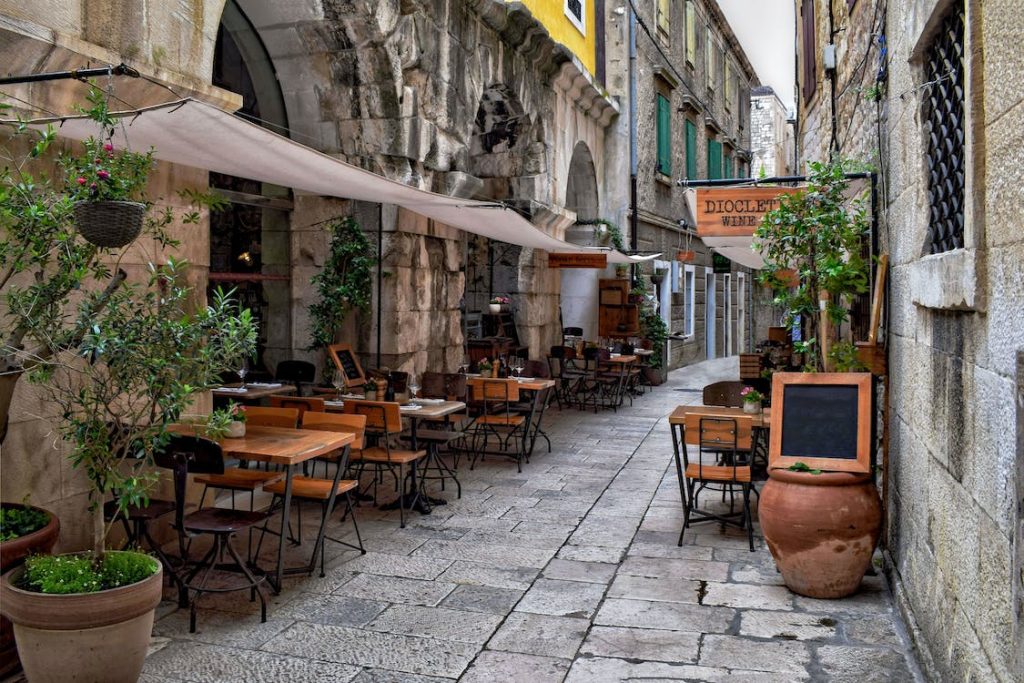June the 14th, 2023 – How would you rate Croatian service awareness? Chris Smoje is back with a second edition of how service varies between Croatia and Australia.
Welcome back to week two of this exploration into customer service in Croatia. Each week focuses on a theme of their service culture which celebrates the unique differences that Croatia offers while I spend the summer in this beautiful country. This week, the theme is “awareness”.
Pazi! (Watch out!)
My trip to Croatia this year has been a real eye-opener, and I wish my baba and dida were still around to hear me say this. I’m travelling with my two small children, and when sitting down to write this – I reflect on just how much I sound like they did when I was a child.
As kids whenever we were “just” playing, my grandparents would always yell “pazi!” which means to “watch out”. It’s like saying caution or attention if there’s a danger or hazard ahead. After last week’s word “polako/pomalo”, saying “pazi” was probably the second most common word they used.
Travelling with small kids means you have to often watch out for them. Something as simple as walking along uneven surfaces requires that extra set of eyes. Fortunately, parents looking out for kids aren’t the only set of eyes out there.
There’s no way to control the way customers behave. In fact, when we look back at enforcing rules in the pandemic, to even making sure someone hasn’t pushed in front of the queue, it is the responsibility of service staff to be aware of what’s going on.
As parents we like to think we know our kids. The staff wherever we’ve gone don’t know this. So, it has been greatly appreciative when they say to “pazi na dijete” (watch out for the child). They seem to have eyes everywhere, looking out for potential things that could go wrong if a child begins to wander or play with something. It’s not that the kid is doing anything wrong, they just want you to look out for them.
Speaking up vs. Keeping your distance
I’ve noticed it’s not only the service staff, but also the local customers too. I feel there is a level of refrain or “biting one’s tongue” in Australia where speaking up is something not always practiced. It could be to not offend, or to mind one’s own business, or even be less direct. But speaking up shows that the staff are on the ball.
As a foreigner, it takes a little getting used to, but every time I’d much rather a person to say something if they see something, than question them later about why they didn’t speak up.
Too often, staff are given a job or task to do, and rarely does their eyesight deviate from this. Well, not in Croatia. Their duty of care extends beyond this and includes their surroundings.
This level of Croatian service awareness isn’t only directed towards children. It’s to any customer. Particularly in the hospitality industry. Each wait-staff knows who “their” customers are. They know when a person arrives and the order customers arrive in. They know who’s ordered what, and who’s ready to order more. While the staff may not act as if there is danger around, they are certainly aware of what’s going on around them.
I’ve had my fair share of restaurants and café’s back home that make it very difficult to get someone’s attention, or to have an order mixed up. I’ve even seen customers move a parasol to get more shade, or move a heater to keep warm – something that would be done in Croatia automatically.
How great does it feel to enter an establishment knowing that you’ll be seen, and the level of care or concern extends beyond you, but to children as well? Croatian service awareness (generally) makes this all a given.
Being told to “pazi” doesn’t mean you can’t relax or enjoy yourself. I would never think that my grandparents yelling “pazi” were the fun police. In fact, they would say it so that we could continue to enjoy ourselves without problems. Therefore, a service culture that is very aware could mean that there would be fewer problems for their customers.
Having a staff member approach you immediately because they saw you walk in, isn’t a bad thing if you don’t yet know what your order is. I’d rather be approached by someone who is aware of me and tell them I’m not ready, than try to get someone’s attention when I am ready.
Saying Pazi is another way of showing care
“Pazi” is not an insult – it comes from a place of care. It’s said with sincerity and meaning. The more I hear it, the more I’m reminded of the nature and kindness of Croats. Speaking up may not work around the world, but wouldn’t it be great if staff could look out for their customers more? That service doesn’t come before or even after safety. Being “of service” to a customer means to watch out for them, their children, their safety, and their needs.
Chris Smoje is an Australian-Croatian expert educator and thought leader on customer service cultures. He is an Amazon best-selling author. His book is called “All-In Culture: Lead your people to be of service”. He is a professional speaker delivering his programmes to organisations and conferences globally: www.chrissmoje.com.











